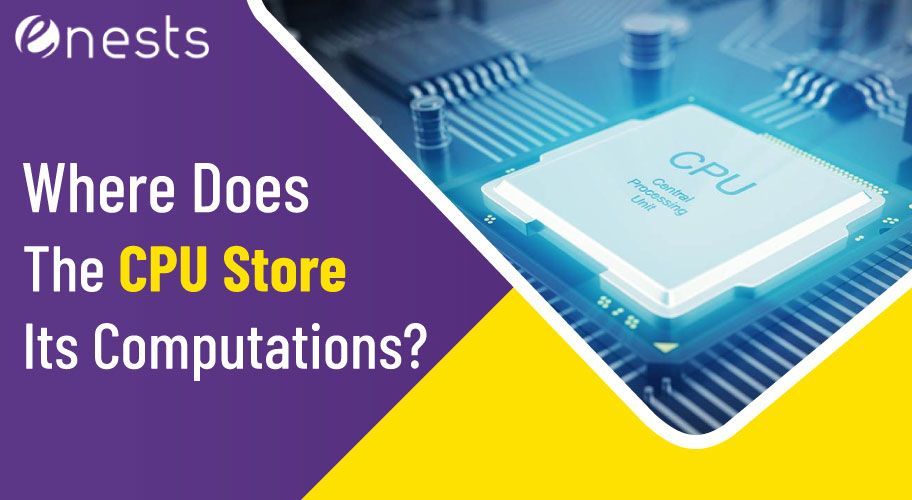The CPU is a core part of any computer, and you need it to ensure that the computer can carry out any of the functions you want it to. It can carry out many, many complex orders at once, but not without help from other components. To keep carrying out its functions, it needs to be able to store those functions too. That’s why we’re answering the question, where does the CPU store its computations? It’s quite complex, but there’s an answer to that question!
What is a register?
For the CPU to be able to carry out its functions and computations efficiently, it needs to be able to store them for later use. On a CPU, there are storage units called registers, and this is where the computations are stored. Registers are a form of temporary memory, which means that they are only going to be used to storing the current and most immediate computations. There are more than one kind of temporary memory in a computer, but as the registers on the CPU are so tiny, they can only handle a certain amount of computations
It’s important to note that not all CPUs are the same and that the capacity of the register and speed at which your CPU is able to process information will differ depending on its power.
Where are the other computations stored?
As the registers are so small, the CPU has to store some of the computations on different caches of memory too. You would likely have heard of RAM, or random access memory, which is one of the larger units of memory in a computer. Your CPU can store a lot of computations that it will need later on the RAM that’s currently installed, and the capacity will depend on what you have. Not all RAM comes in the same size, and it can have a large effect on how well the computer itself functions.
Other than RAM, there are multiple other forms of storage for your CPU’s computations. Like mentioned before, it will primarily store them on its registers - but there are caches that it relies on too. If you’ve ever shopped around for a CPU, you would likely have seen the memory that it comes with, and it can play a huge role in the speed of the computer itself.
When it comes down to it, the CPU will mostly rely on the temporary, smaller storage that it has internally to store its computations. The memory is easier to access for the CPU, and it’s not always necessary to store all of the computations permanently - which is why the storage units are only temporary. These temporary storage units are also often referred to as volatile memory - as they’re not going to be saved for long periods of time. When the power is out, the CPU will not retain the memory of its stored computations unless it has been saved to a more permanent form of storage.

